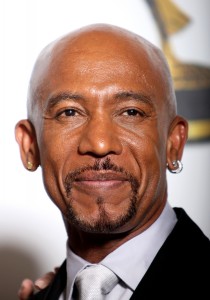Before the Vermont legislature is set to adjourn Saturday, the Senate is still uncertain whether it will pass aid-in-dying legislation, modeled after Oregon’s and Washington state’s Death with Dignity laws approved via ballot initiatives (rather than in legislation). Vermont’s Governor Peter Shumlin ran in 2010 in support of the aid-in-dying issue. The Senate voted down the bill Tuesday evening, but the issue remains unresolved, with further action left for today.
A poll conducted last spring by Momentum Analysis found 74 percent of Vermont voters favored allowing a mentally competent adult, who is dying of a terminal disease with no hope of recovery, the choice to bring about his/her own death.
Emmy Award-winning television host Montel Williams famously advocates for end-of-life choice, including aid-in-dying, and garnered some attention recently when he appeared on the cover of the spring issue of Compassion & Choices Magazine, which advocates for choice at the end of life.
Williams, who revealed in 1999 that he has multiple sclerosis (MS) and is an active healthcare advocate, expressed support for the right of terminally ill people with unbearable suffering to control the time and manner of their death. He states, “I do not believe people should be deciding what level of pain other people should endure, especially knowing they have no chance for recovery. It is a personal decision.”
“It is not assisting suicide,” Williams argues against the common perception of aid-in-dying. “I have thought this out, including for myself, and I’ve had many discussions with members of my family. … I’m also aware that my disease is going to progress. And there may be a day when I am told I have a finite amount of time left on this planet and when I may be in incredible pain. So when that time comes, I don’t care what anybody thinks or calls it. It’s my decision. And if I choose to go, then that’s my call.”
As with all end-of-life matters, Williams encourages families to discuss these issues before a crisis occurs. He advises that doctors participate in those discussions, but don’t have definitive say in the decision.
In keeping with the Vermont numbers, a January 2011 Harris poll found that 70 percent of U.S. adults agree that “individuals who are terminally ill, in great pain and who have no chance for recovery, have the right to choose to end their own life.” The poll also found that “most people over [the age of] sixty-five now have end of life directives.”
To learn more about the issue of aid-in-dying, and see where the controversy has fallen in politics and pop culture in the past few years, see these articles from SevenPonds:
- The Legal Process of Aid-in-Dying (Vermont, 2011)
- Physician-Assisted Aid-in-Dying: A New Front in the Culture Wars?
- The Ongoing Aid-in-Dying Debate (Hawaii, 2011)
- Film Review: “Kevorkian”

 In the News: Will Vermont Be the First Legislature to Approve an Aid-in-Dying Bill?
In the News: Will Vermont Be the First Legislature to Approve an Aid-in-Dying Bill?




 How to Comfort A Dying Loved One
How to Comfort A Dying Loved One
 Our Annual Seven Holiday Gifts for Someone Who Is Grieving, 2024 Edition
Our Annual Seven Holiday Gifts for Someone Who Is Grieving, 2024 Edition














